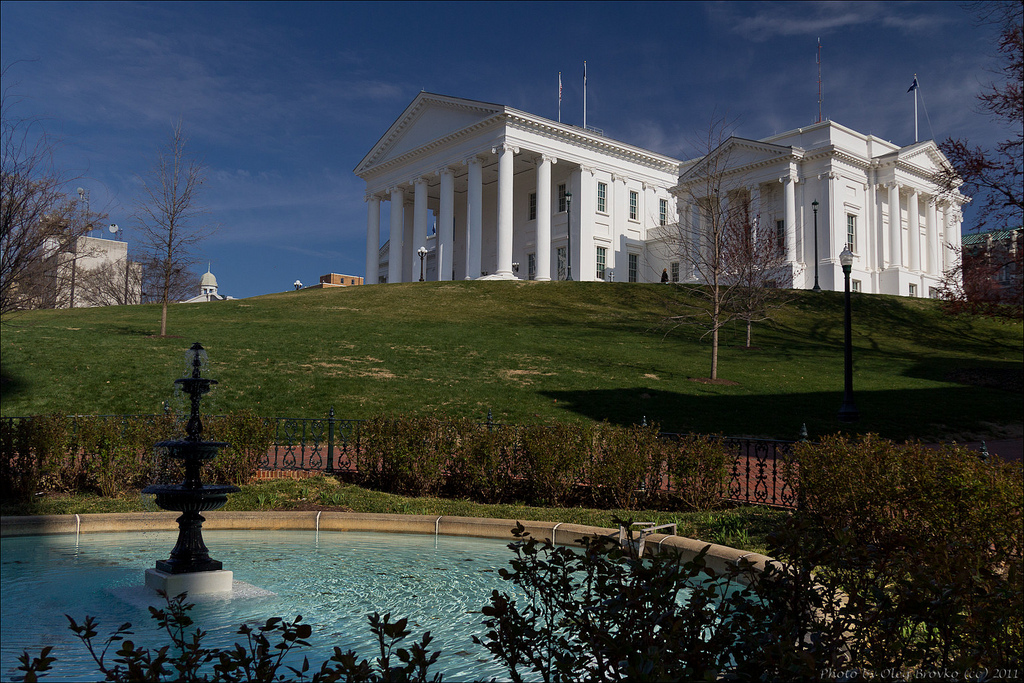Earlier this month, both chambers of the Virginia General Assembly voted to approve a tax reform package that will provide nearly $1 billion in tax relief. After months of fiscal battles with Democrats, not only did the GOP eliminate frivolous state spending, they also provided new pathways towards creating a 21st century workforce, making investments in K-12 and higher education, securing retail and business giant Amazon’s arrival in Arlington, and other programs that will aid in promoting business growth.
Kicking off the legislative package is the conservative and balanced final budget agreement. H.B. 1700, introduced by the House Appropriations Chairman Chris Jones (R-Suffolk), eliminates over $1 billion in proposed spending from Governor Ralph Northam (D). The bill includes a five percent teacher pay increase and $57 million to freeze tuition at public colleges and universities, among many other stipulations.
Delegate Jones’ H.B. 2356 creates a grant fund to provide post-performance incentives to Amazon for creating 25,000 new jobs in the Commonwealth paying an average of $150,000 per year. The incentives are paid only after Amazon makes its investments and creates the jobs.
H.B. 2550, also from Jones, would have created the Commonwealth of Virginia Research Consortium Authority to oversee and support research and commercialization in Virginia, bringing statewide research activities under one roof to make more efficient use of investments. That bill, however, died in conference.
H.B. 2653, introduced by House Speaker Kirk Cox (R-Colonial Heights), would create “Institutional Partnership Performance Agreements” to allow colleges, businesses, and state governments to work together to make college more affordable, promote access to internships, align degree programs to the Commonwealth’s economic needs, and ensure steady investments in higher education. By creating institutional partnership agreements, Virginia leaders can aid in aligning efforts on major priorities like the talent production and acquisition and affordable access, leading to funding measurable results.
One of the chief architects of this year’s tax reform package was GOP Caucus Chairman Tim Hugo (R-Clifton) who patroned H.B. 2529 to guarantee $976 million in tax relief. Over the next two years, the bill will provide $110 and $220 refunds to individuals and couples and increase the state standard deduction by 50 percent. Moreover, all revenue from the federal Tax Cuts and Jobs Act will be placed in a Taxpayer Relief Fund.
H.B. 1920, introduced by Delegate Chris Stolle (R-Virginia Beach), requires the State Council of Higher Education for Virginia, in awarding grants pursuant to the New Economy Workforce Credential Grant Program, to give priority to institutions that offer non-credit workforce training programs in high-demand fields in which employer demand is currently unmet by the available workforce.
To increase the number of bachelor’s and master’s degrees awarded in computer science, computer engineering, and closely-related fields by at least 25,000, House Majority Whip Nick Rush’s (R-Montgomery) H.B. 2490 will create the Tech Talent Investment Program and Fund, which seeks to fulfill its requirements by 2039.
H.B. 2327 from Delegate Joe McNamara (R-Salem) permits the Director of the Department of Professional and Occupational Regulation (DPOR) to issue a cease and desist notice to any person unlawfully engaging in unlicensed practice of an occupation.
Introduced by Delegate Jeffery Campbell (R-Wythe), H.B. 2028 requires DPOR to prepare an evaluation of any legislation that proposes an increase or the beginning of regulation of an occupation in Virginia.
Regulatory boards will be required to adjust their fees if they have collected surplus revenue, according to H.B. 1939, which was introduced by Delegate Michael Webert (R-Fauquier). At the end of a two-year period, if the boards have revenue that exceeds the limit set by the legislation, that board must reduce the certification and licensure fees, distributing all unspent funds to current regulants.
H.B. 2197, patroned by House Majority Leader Todd Gilbert (R-Shenandoah), allows for the limited use of discovery depositions and affidavits in support of or in opposition to a motion for summary judgment, provided that the only parties to the action are business entities and the amount at issue is $50,000 or more.
Delegate Chris Peace’s (R-Hanover) H.B. 2324 limits the liability costs involved with major information technology projects, thus keeping the cost of doing business low so the Commonwealth’s economy can continue to grow.
Also from Delegate Peace, H.B. 2167 limits legal costs for businesses by requiring lawsuits to use more convenient and less burdensome means of acquiring evidence before deposing a CEO or business executive.





